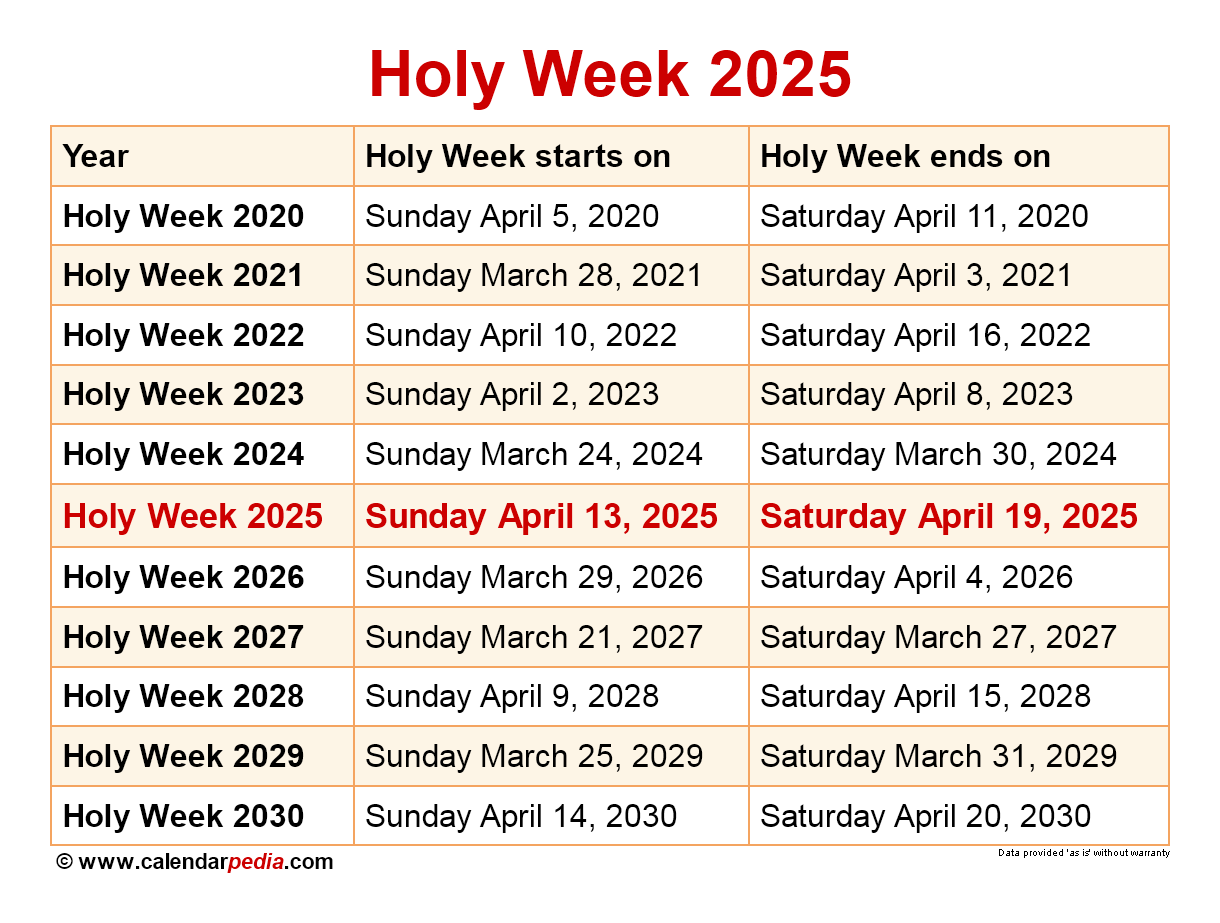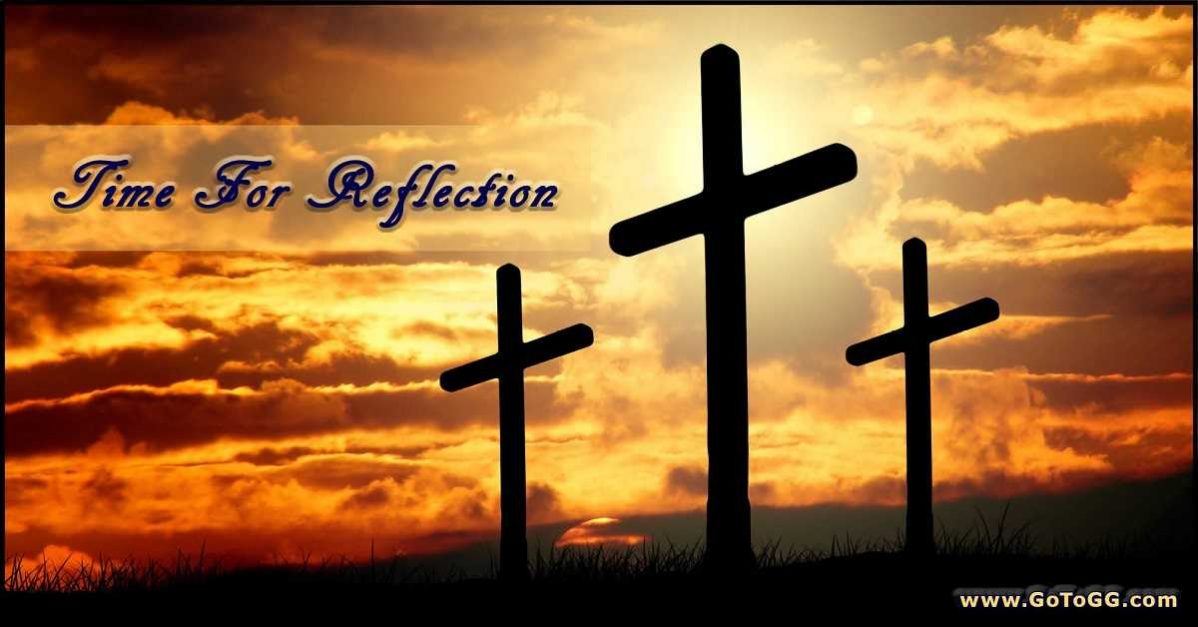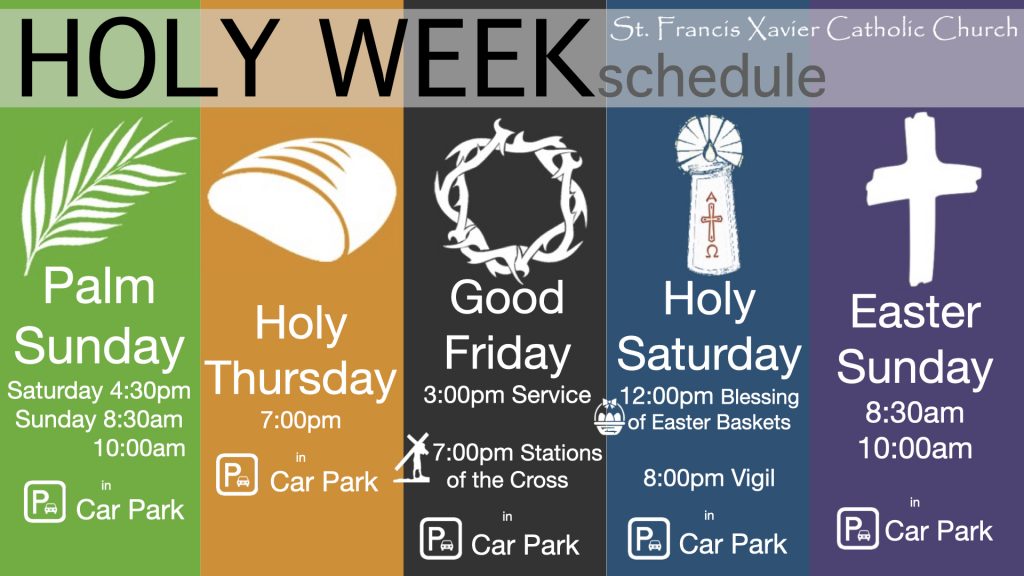Holy Week 2025: A Time For Reflection, Remembrance, And Renewal
Holy Week 2025: A Time for Reflection, Remembrance, and Renewal
Related Articles: Holy Week 2025: A Time for Reflection, Remembrance, and Renewal
Introduction
With enthusiasm, let’s navigate through the intriguing topic related to Holy Week 2025: A Time for Reflection, Remembrance, and Renewal. Let’s weave interesting information and offer fresh perspectives to the readers.
Table of Content
Holy Week 2025: A Time for Reflection, Remembrance, and Renewal

Holy Week, the week leading up to Easter Sunday, is a pivotal period in the Christian calendar. It commemorates the final days of Jesus Christ’s earthly life, culminating in his crucifixion and resurrection. While the exact dates of Holy Week shift each year, in 2025, it will fall between March 29th and April 5th, offering a time for reflection, remembrance, and spiritual renewal.
Understanding the Significance of Holy Week
Holy Week is not merely a historical retelling; it is a profound and deeply personal journey of faith. It invites Christians to engage with the events of Jesus’ passion, death, and resurrection on a visceral level, fostering a deeper understanding of God’s love and sacrifice for humanity.
The Stages of Holy Week
Holy Week unfolds in a sequence of events, each with its own unique meaning and significance:
- Palm Sunday (March 29th, 2025): This day marks Jesus’ triumphal entry into Jerusalem, where he was welcomed by crowds waving palm branches. It symbolizes the beginning of his final week and serves as a reminder of his coming sacrifice.
- Holy Monday and Holy Tuesday (March 30th and 31st, 2025): These days are often dedicated to reflecting on Jesus’ teachings and actions, particularly his cleansing of the temple and his parables about the Last Judgment.
- Holy Wednesday (April 1st, 2025): This day is traditionally associated with Jesus’ anointing by Mary Magdalene and his betrayal by Judas. It prompts reflection on the themes of love, betrayal, and forgiveness.
- Maundy Thursday (April 2nd, 2025): This day commemorates the Last Supper, where Jesus shared a meal with his disciples, instituted the sacrament of Holy Communion, and washed their feet. It signifies his selfless love and service.
- Good Friday (April 3rd, 2025): This day marks the crucifixion of Jesus, a solemn reminder of his immense sacrifice for humanity. It is a day of mourning and contemplation.
- Holy Saturday (April 4th, 2025): This day represents the period between Jesus’ death and resurrection, a time of waiting and anticipation. It is a day of silent reflection and preparation for the joy of Easter.
- Easter Sunday (April 5th, 2025): This day celebrates the resurrection of Jesus, signifying victory over death and the promise of eternal life. It is a day of joy, celebration, and renewal.
Observing Holy Week: Practices and Traditions
The observance of Holy Week varies across denominations and individuals, but some common practices include:
- Liturgical Services: Churches hold special services throughout the week, focusing on the events of Jesus’ passion and resurrection. These services often feature readings, hymns, and prayers.
- Fasting and Abstinence: Many Christians practice fasting or abstaining from certain foods or activities during Holy Week as a sign of penitence and self-denial.
- Prayer and Reflection: Holy Week is a time for deep prayer and reflection on the meaning of Jesus’ sacrifice and the implications for one’s own life.
- Acts of Service: Many Christians engage in acts of service and charity during Holy Week, reflecting Jesus’ example of love and compassion.
Benefits of Observing Holy Week
Observing Holy Week offers numerous benefits for individuals and communities:
- Deeper Spiritual Connection: Holy Week provides an opportunity to deepen one’s relationship with God through prayer, reflection, and participation in liturgical services.
- Increased Understanding of Jesus’ Sacrifice: By engaging with the events of Holy Week, Christians gain a deeper understanding of Jesus’ love and sacrifice for humanity.
- Renewed Commitment to Faith: Holy Week can be a time for reaffirming one’s faith and commitment to following Jesus’ teachings.
- Personal Growth and Transformation: The reflection and introspection encouraged during Holy Week can lead to personal growth and transformation.
- Community Building: Shared experiences during Holy Week strengthen bonds within the Christian community and foster a sense of shared faith.
Frequently Asked Questions about Holy Week 2025
Q: What is the significance of Holy Week?
A: Holy Week is a pivotal period in the Christian calendar, commemorating the final days of Jesus Christ’s earthly life, culminating in his crucifixion and resurrection. It provides an opportunity for reflection, remembrance, and spiritual renewal.
Q: How is Holy Week observed?
A: The observance of Holy Week varies across denominations and individuals, but common practices include liturgical services, fasting and abstinence, prayer and reflection, and acts of service.
Q: What are the benefits of observing Holy Week?
A: Observing Holy Week can deepen one’s spiritual connection, increase understanding of Jesus’ sacrifice, renew commitment to faith, foster personal growth, and build community.
Q: How can I make the most of Holy Week?
A: To make the most of Holy Week, engage in prayer and reflection, attend liturgical services, participate in acts of service, and read Scripture passages related to the events of Holy Week.
Tips for Observing Holy Week 2025
- Attend Liturgical Services: Participate in church services throughout the week, paying attention to the readings, hymns, and prayers.
- Engage in Scripture Study: Read Gospel accounts of Jesus’ passion and resurrection, meditating on their meaning and significance.
- Practice Prayer and Reflection: Dedicate time each day to prayer and reflection, focusing on the events of Holy Week and their impact on your life.
- Engage in Acts of Service: Perform acts of kindness and compassion for others, mirroring Jesus’ example of love and service.
- Observe Fasting and Abstinence: Consider practicing fasting or abstinence from certain foods or activities as a sign of penitence and self-denial.
Conclusion
Holy Week 2025 offers a unique opportunity for Christians to engage with the profound events of Jesus’ passion, death, and resurrection. By participating in liturgical services, engaging in prayer and reflection, and performing acts of service, individuals can deepen their spiritual connection, renew their commitment to faith, and experience the transformative power of Holy Week. This period of remembrance and reflection provides a chance to reflect on the sacrifice of Jesus, his message of love and hope, and the profound impact it has on our lives.








Closure
Thus, we hope this article has provided valuable insights into Holy Week 2025: A Time for Reflection, Remembrance, and Renewal. We hope you find this article informative and beneficial. See you in our next article!